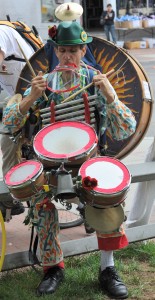
Some years ago, I read The Alexiad by the Byzantine Princess Anna Comnena (1081-1151). Her history of her father’s reign, including the uninvited visit to Constantinople by the first crusaders, is one of the great works of history.
Why I read it and why you should, I’ll write about another day.
Part of its fascination lies in how different Byzantine governance was from that of contemporary kingdoms in western Europe. One unforgettable detail: heretics, dissenters and traitors often weren’t burnt or hung – or worse – as they were to the west. Many were blinded and set loose.
This came to mind as I read ‘Homer Inc’, an essay by Edward Luttwak in the London Review of Books. The Trojan War took place 2000 years before Anna Comnena’s history but only a few miles away from where Constantinople would rise.
The Iliad can be read as a hymn to bravery in war or a send-up of pointless killing and agony inflicted in the service of von Clausewitz’s ‘politics by other means’. I favor the second view. I find the first too much to bear, too awful a reminder of our recent wars of choice.
According to tradition, Homer was blind. But what he describes is so real, so concrete, that blindness from birth seems unlikely. Like the Gospel-writer Mark’s on Jesus’s crucifiction, Homer didn’t witness the events he describes, but he’d certainly seen ones like them.
Perhaps the Byzantines’ Greek ancestors recognised a subversive spirit and set a precedent for their distant descendants. Today, our Homers suffer a worse fate. They’re ignored.
Recent Comments